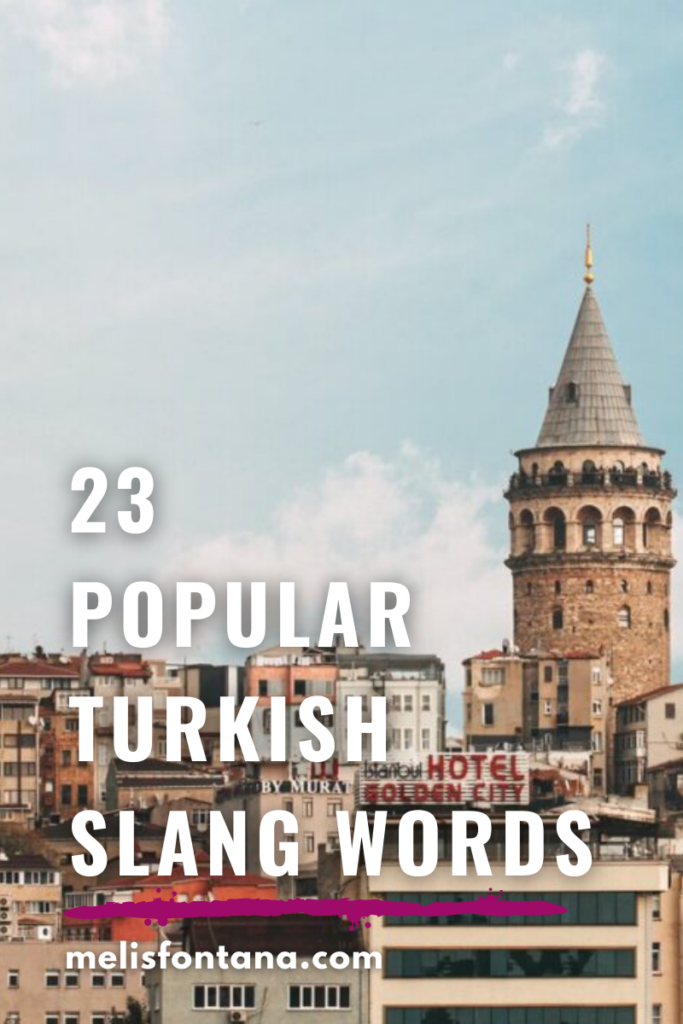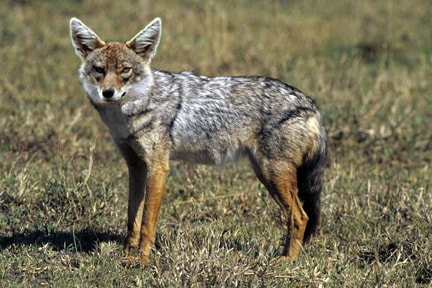
Slang is defined in Wikipedia as;
An expression should be considered “slang” if it meets at least two of the following criteria;
It lowers, if temporarily, “the dignity of formal or serious speech or writing”; in other words, it is likely to be considered in those contexts a “glaring misuse of register”. Its use implies that the user is familiar with whatever is referred to, or with a group of people who are familiar with it and use the term.
“It’s a taboo term in ordinary discourse with people of a higher social status or greater responsibility.” It replaces “a well-known conventional synonym.” This is done primarily to avoid discomfort caused by the conventional synonym or discomfort or annoyance caused by having to elaborate further.
Wikipedia
You probably already know this. But do you know what Turkish slang words are?
1- Kanka
Kanka is a commonly used word in Turkish. Generally, close friends address each other in this way. Kanka is actually a short version of kankardeş (literally blood brother/sister). Some people (I’m one of them) don’t like this word.
- Kanka naber ya? (Buddy, what’s up?)
- İyilik kanka senden naber? (Fine buddy, what about you?)
- Benden de iyilik. Nerelerdesin? (Fine too. Where have you been?)
- Tatildeydim kanka yeni döndüm. (I was on holiday buddy, I just came back.)
2- İnek
The word “nerd” in English is “cow” in Turkish. It is used for people who are hard working, do nothing but study.
- Akşam sinemaya geliyor musun? (Are you coming to the cinema this evening?)
- Bugün çıkamayacağım, ders çalışmam gerek. (I can’t go out today, I have to study.)
- Sen de tam inek çıktın ya. (You are such a nerd.)
3- Tuzlu
We use the word “tuzlu” for expensive things. Its literal meaning is ”salty”.
- Bu elbise nasıl sence? (What do you think about this dress?)
- Fiyatı nedir? (What’s the price?)
- 500 lira (500 Lira)
- Çok tuzlu. Alamayız! (It’s too expensive! We cannot buy it!)
4- Kafa ütülemek
The term kafa ütülemek means “to disturb people by talking nonsense, chattering, talking a lot and unnecessarily“.
If you annoy someone with your speeches and this person is Turkish, the first thing you will probably hear from that person will be ”kafamı ütüledin” which literally means ”you ironed my head”.
- Yeni çocuk nasıl? Anlaşabildiniz mi? (How is the new guy? Did you two get along well?)
- Anlaşmak mı? O kadar çok kafa ütülüyor ki! Onun yanında bir kelime etmenin imkanı yok! (Getting along? He just talked me ragged!)
- Yeter artık kafa ütülediğin! Biraz ara ver! (That’s enough of you now! Take a break!)
5- Kazıklamak
If something is too expensive we call it ”kazık”. ”Kazıklamak” is used to explain the situation in which a person tries to deceive the other by selling something for a price higher than its value.
If someone sold you a product for a very high price, you would be ”kazıklanmış”.
- Bu ceket nasıl? Sadece 500 lira. (How much is this jacket? It’s only 500 lira)
- Ne? Kazık! 500 liraya 2 tane ceket alırsın. (What? Expensive! You can buy two jackets for 500 lira!)
- Bu ayakkabıları ne kadara aldın? (How much did you pay for the shoes?)
- Çok pahalı. Sanırım kazıklandım. (It’s too expensive. I guess I got ripped off.)
- Evet anlaşılan satıcı seni kazıklamış. (Yes it seems the seller overcharged you.)
6- Matrak
“Matrak” is a Turkish slang word meaning fun, funny and pleasant.
- Yeni iş arkadaşın nasıl biri? (How is your new colleague?)
- Çok matrak bir kadın. Çok iyi anlaşacağa benziyoruz. (She is amusing. It seems that we are going to get along well.)
7- Cebi delik
Both cebi delik (literally his pocket has a hole) and beş parasız (literally without five money) mean the same; “poor, without money”.
- Bu sefer yemeği sen ısmarla, olur mu? (You pay for the dinner this time, ok?)
- Ben beş parasızım bilmiyor musun? (I have no money, don’t you know?)
- Onun cebi delik, yine biz ödeyeceğiz. (He is broke, we’re going to pay again.)
- Ben beş parasızım bilmiyor musun? (I have no money, don’t you know?)
8- Akşamdan kalmak
”Akşamdan kalmak” means feeling bad the next day after an evening of drinking too much alcohol, hangover.
- Neden bu kadar yorgun görünüyorsun? (Why do you look so tired?)
- Çünkü akşamdan kaldım. Su alabilir miyim? (Because I’m hungover. Can I have some water?)
- Akşamdan mı kaldın sen? Neden çalışmıyorsun? (Are you hungover? Why don’t you work?!)
9- Valla?
“Vallahi” is an Arabic word meaning to take an oath. We use this word in colloquial language by shortening it as ”valla’. ”Valla mı” and ”valla” are slang versions of “really, really or not”.
- Kızım evlendi,haberin yok mu? (My daughter got married, haven’t you heard about it?)
- Valla? Hiç haberim yok! Neden söylemedin? (Really? I have not heard about it. Why didn’t you tell me?)
- Yemekler benden! (Food is on me!)
- Valla? Süper! (Really? Super!)
10- Hadi oradan
You can use this phrase when you don’t believe something or when you are very angry with something someone said.
- Bu akşam Roma’ya uçağım var! (I have a flight to Rome tonight)
- Hadi oradan! Gerçekten mi? (You gotta be kidding me! Really?)
11- Ayvayı yemek
It is used when we are in a situation where nobody wants be. If you are in trouble, it means ”ayvayı yedin”, literally you ate the quince!
- Eyvah! Polis geliyor! (Alas! The police is coming!)
- Şimdi ayvayı yedik! (We are screwed)
- Neden kaçıyorsun? (Why you are running away?)
- Kaç kaç! Ayvayı yedik, babam burada! (Run run! We are screwed, my father is here!)
12- Yandık!
When something bad happens to us, we also say ”yandık”, which means the same as ayvayı yedik.
- Haberleri gördün mü? Bugün tüm marketler kapalı! (Did you see the news? All markets are closed today!)
- Eyvah, yandık. Evde hiçbir şey yok ve akşam misafirlerim gelecek! (Alas, we are doomed. There’s nothing in the house and I have guests tonight.)
13- Sazan
Carp is actually a fish that lives in fresh waters. However, in slang it is used for people ”who believe in everything”. We usually use it as ”sazan gibi atlamak”
- Sen de her şeye sazan gibi atlıyorsun! (You are caught with chaff all the time!)
14- Beleş
Instead of ”bedava” we say the slang word ”beleş” which is originated from Arabic.
- Kolye ne kadarmış? (How much is the necklace?)
- Beleş. Para istemedi. (Free. He didn’t ask for money.)
- Hesap ne kadarmış? (How much is the bill?)
- Beleş! Sahibi arkadaşım. (Free of charge! The owner is my friend.)
15- Racon
“Racon” actually passed to Turkish from Italian word “ragione”, which means “reason” in Italian. When we say ”Racona ters”, we mean that it is against reason and logic. We also say ”racon kesmek” which means settling a dispute according to the rules that prevail in the world of bullying.
Burada racon kesemezsin! (You can’t swagger here!)
16- Ekmek
To explain the situation where you have an appointment with someone but you do not go, we say ”ekmek”
- Dün beni neden ektin? (Why did you stand me up yesterday?)
- Çok hastaydım, özür dilerim. (I was so sick, sorry.)
- Bu akşam işin var mı? (Are you free tonight?)
- Var ama boşver, onu ekerim. Beraber çıkalım. (Yes but doesn’t matter, I’ll stand him up. Let’s go out together.)
17- Enayi
”Enayi” means easily deceived, excessively stupid, naughty and dumb.
- Ona ne hediye aldın? (What gift did you get her?)
- Son çıkan telefonlardan aldım. (I bought her from the latest phones.)
- Enayi misin sen ya? O kadar para verilir mi? (Are you fool? Why did you spend that much?)
18- Keriz
Enayi ile aynı anlama gelen, kolayca aldatılabilen, aptal, saf kimselere argoda ”keriz” de denir.
- Senden istediği borç parayı vermedin değil mi? (You didn’t lend the money he wanted from you, did you?)
- Verdim elbette! (Of course I did!)
- Keriz misin sen ya? Nasıl inandın o adama? (Are you simpleton? How did you believe him?)
19- Lan
If you ask what word a Turk uses most frequently in her/his life, the answer would be ”lan”! This word is like a dot for some people, they put it at the end of each sentence. Although it has been translated into English as man or mate, we no longer use the word lan in its literal meaning.
You can use the word “lan” at the end or beginning of all sentences.
* PS: Do not use it except in conversations with your friends!
- Naber lan! (What’s up?)
- İyilik lan senden naber? (Good, what about you?)
- Lan bana neden söylemedin? (Why didn’t you tell me?)
- Ne bileyim lan unuttum. (I don’t know, I forgot.)
- O kim lan? (Who is that?)
- Bir arkadaş. Sen tanımazsın. (A friend. You don’t know him.)
20- Kıro
We call people who are not educated and rude, ”kıro”.
- Şu kıroya bakar mısın, çoraplarını çıkarmış ayaklarıyla oynuyor! (Look at that lowbrow, he’s playing with his feet off his socks!)
- Kıro musun sen ya? Nasıl bir giyinme şekli bu? ( Are you a lowbrow? What kind of dressing is this?
21- Dandik
In slang, we say ”dandik” to poor quality things.
- Ne izliyorsun? (What are you watching?)
- Şu yeni çıkan diziyi izliyorum. (I’m watching this new tv series.)
- Ya şu dandik şeyleri neden izliyorsun anlamıyorum. (I don’t understand why you are watching these lousy things.)
- Yeni telefon mu aldın? Eskisine ne oldu? (Got a new phone? What happened to the old one?)
- Çok dandikmiş, kırıldı hemen. (It was poor-quality, got broken immediately.)
22- Çakal
”Çakal” is this cute animal below;

However, in slang it is used for people that are good at deceiving others.
- Ne yapıyorsun sen orada? (What are you doing there?)
- Birazdan anlarsın! Bu oyunu biz kazanacağız. (You will get it soon! We are going to win this game.)
- Sen tam bir çakalsın! (You are such a smartass.)
23- Kokoş
We call women who give great importance to their appearance, dress in exaggerated fashion and with fancy, ”kokoş”.
- Hangi kızdan bahsediyorsun? Şu kokoş olan mı? (Which girl are you talking about? Is that the fashionista one?
- Evet o süslüden bahsediyorum. (Yes, I’m talking about that dolly bird.)
As in every language, the number of Turkish slang words are endless and if I continue to write more, I will have to write for pages! But isn’t that the beauty of languages? It’s nice to be able to speak slang in our native language, but wouldn’t it be perfect if we could do it in other languages as well?
I hope this information will be useful to you. I guess I’ve ”ironed enough heads” (kafa ütüledim), goodbye!
For other articles about learning Turkish, please check here.
If you want to check articles about other languages, click here.
Don’t forget to comment if you have any questions and let me know how your Turkish studies are going!
İyi yolculuklar – Have a good journey!

Yedin bizi
Yürü taş arabası
Yürüde arka traşını görelim
Geceden Leyla
Amma salladın
Dilini tut
Nah alırsın
Veriyomu?
Cebinde akrep var
Taşşaklı karı
Ayakta uyuyor
Amma ödleksin